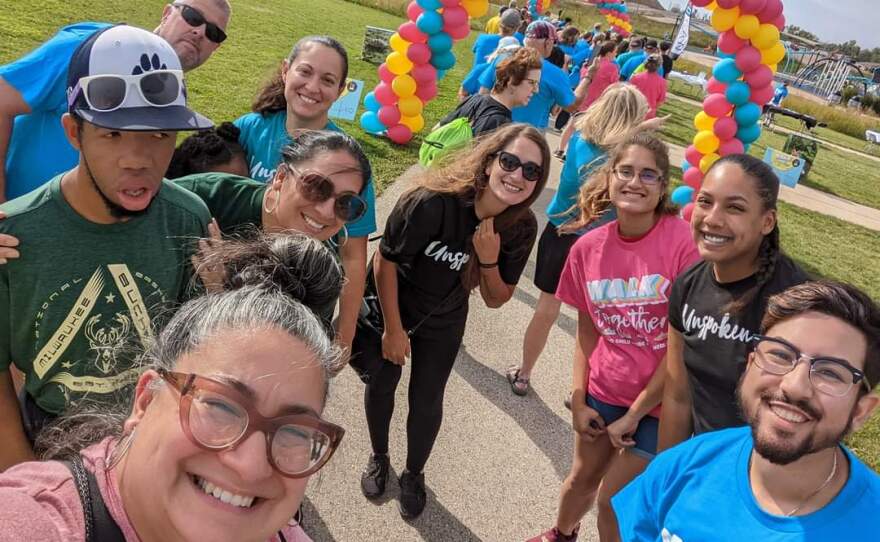*This conversation includes personal stories of child abuse and neglect.*
"I do the work because there was no voice there for me. So, I'm a voice for others."
- Scott Kinderman on his work that supports survivors of child abuse.
Many survivors of child abuse and neglect can go for years without sharing their experience and without receiving the help they need. The National Foundation to End Child Abuse and Neglect is dedicated to addressing that issue. They highlight the long-term physical, mental, and public health impacts of abuse, in part through community fundraising walks called “Walk Together.” And they’re holding one this Saturday in Milwaukee.
Candace Sanchez, Scott Kinderman and Christina Trinidad are all survivors and advocates involved in Walk Together Milwaukee and deeply understand how Walk Together Milwaukee can battle the issues surrounding child abuse and neglect. All three are also board members for the BeLEAF Survivors organization based in Racine, Wis.
"[Walk Together] is an event to celebrate the strength of child abuse survivors while we bring the community together to really promote and create the cultural change," explains Sanchez. "Because it is a taboo topic, and it makes people uncomfortable to talk about their abuse, whether it's sexual abuse, emotional abuse, physical abuse, all the types of abuse and the effects that it has on us. So, it's a celebration."
One of the most significant issues surrounding child abuse is the misconceptions about what specific type of problem it is. While it's often perceived as a social or legal problem, research continually indicates that it's a health, mental health, and public health problem. Understanding this distinction brings the community a step closer to solving a problem that Sanchez says is solvable and preventable.
Another issue is not recognizing the signs and indicators of abuse in children, which are often seen in the child's behavioral patterns. Trinidad says, "They tend to fade away from parents or fade away from friends or even teachers ... It's more [the mindset] of 'it's the kid being the one at fault, and they're refusing to pay attention' rather than 'what's really going on with their mental state or going on at home?"
Kinderman says, "I think what is missing is the trauma awareness. Circumstances create behaviors."
Kinderman says the most helpful approach to helping survivors is to bring empathy and understand the difference between empathy and sympathy. Kinderman also cites Brené Brown's video as an excellent resource to help understand that difference.
In a shared, relatable and safe space, this trio connected and began thinking of broader ways to help others who may be going through similar experiences. Sanchez says, "That's how we all encountered one another is through the power of our own story — but then giving power to someone else because so many of us live in silence. With the walk, [we] say we are louder than silence and together we are stronger."
The main effort of the walk is to encourage survivors to embark on their healing journey because the journey can often take some time. For Kinderman, it was 35 years before his process began. "And it wasn't easy. There's a lot to go through. There is personal forgiveness. There is forgiving of the other person. There is [the question of] do you grant absolution to the other person?"
For Trinidad, the process of healing began after reaching a turning point in her life. "And I'm just looking at my girls, and I'm like, 'Why do I let somebody that hurt me take over my life the way they took over?' I'm here not just for myself, but I'm here for my girls, you know, and they shouldn't see me like this. I shouldn't let somebody take so much control over myself," she recalls.
To now be in a place where they are not only walking and experiencing their healing journey, but actively creating space for others to do the same is a profound and humbling experience for both Kinderman and Trinidad. They are both being recognized with the Unspoken Hero Award. Sanchez says, "I have seen both of these individuals, these survivors thrive. They're both stepping out and speaking out. That's why they're so deserving of the Unspoken Hero Award that will be celebrated at the walk next weekend. And I can't wait to give them those awards."
_









